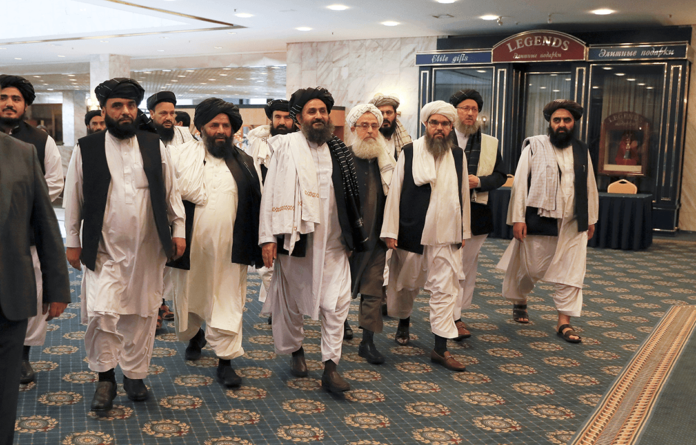The Taliban since coming into power on August 15, 2021, have been facing several internal challenges, foremost of which is the peace and security situation. On one hand, many Afghans celebrate the fact that attacks on civilians have decreased to a considerable extent, but, on the other, the Islamic State of Khurasan Province has expedited its attacks, targeting ethnic and religious minorities in different parts of Afghanistan.
The ISKP has claimed responsibility for multiple attacks carried out across the country.
A member of Afghanistan’s Sikh community has appealed to the international community to help protect religious minorities in the country following an attack on the Karteparwan Gurudwara – a Sikh temple – in Kabul that left at least two dead and three injured.
The Taliban said in a statement that a car laden with explosives was prevented from entering the temple complex on Saturday and detonated before it reached the intended target.
“I live close to the Gurudwara and was just getting ready for the day when I felt the loud explosion. I have never before felt anything so strong,” a Sikh resident of Kabul, who only wished to be identified as Anita, told an international news channel. Anita is among the estimated 140 Hindus and Sikhs that remain in Afghanistan; a community that once numbered approximately 200,000 members in Afghanistan in the 1970s.
Years of religious persecution and conflict have forced many Afghan Hindus and Sikhs to flee the country, reducing their numbers to about 7,000 by 2016, and now to a mere 140 who have chosen to remain since the Taliban takeover of the country in August 2021.
A 400-year-old Gurudwara in Kabul was attacked by the ISKP militant group in 2020, resulting in 25 deaths and a new Sikh exodus from the nation.
Last month, the militant group also attacked a minivan in Mazar Sharif, and a mosque in Kabul, killing dozens of people. There was no claim of responsibility for the Kabul Mosque explosion, but it also bore the hallmarks of ISKP.
Although there have been fewer bombings nationwide since the Taliban took over in August of last year, the holy month of Ramadan was rocked by explosions in several places.
The largely sectarian attacks throughout Ramadan resulted in dozens of civilian deaths, some of which were claimed by the ISKP. The biggest security threat to Afghanistan’s Taliban authorities is thought to be the ISKP, which has been active there since 2014.
The ISKP headquarters in eastern Afghanistan was the target of a broad offensive by the Taliban when they took control. ISKP’s presence in Afghanistan also puts the neighboring nations of Tajikistan, Pakistan, and Uzbekistan in danger. Consequently, the Taliban’s capacity to prevent terrorism on Afghan soil has come under scrutiny as a result of the terrorist group’s rising visibility.
Hence, the extremist group’s growing profile has also raised question marks over the Taliban’s ability to ensure that Afghan soil is not used to launch terrorist attacks abroad. Meanwhile, ISKP has also announced its ambitious plan to carry out attacks in Chinese and Iranian territories.
A recent earthquake that struck different parts of Afghanistan on June 20, 2022, is another snag to the de facto government’s capability to handle the country confronting a dire humanitarian crisis.
One thing is absolute: the Taliban government is facing challenges beyond its threshold.
In times as such, the international community must not abandon Afghanistan. The terrorist elements will gain strength in Afghanistan if the Taliban government is shunned, falls apart, or proves ineffective. On the other hand, if they are motivated, they will be better able to combat terrorist organizations. All parties involved, including the Taliban regime, the neighboring nations, and the international community, have a part to play in preventing a humanitarian catastrophe and ensuring stability in Afghanistan.




